Ahead of the 25th anniversary of the end of hostilities in Kosovo, the plight of Roma, Ashkali and Egyptian communities in the region remains one that NGOs on both sides of the border are working to improve.
As the 25th anniversary of the cessation of hostilities in Kosovo approaches on June 11, the landscape of the region remains a tableau of lingering strife juxtaposed with pockets of precarious tranquillity.
Amidst this uncertain tapestry, the quest for basic human necessities in Roma, Ashkali and Egyptian communities persists as a haunting refrain, echoing through the collective consciousness of a fractured society.
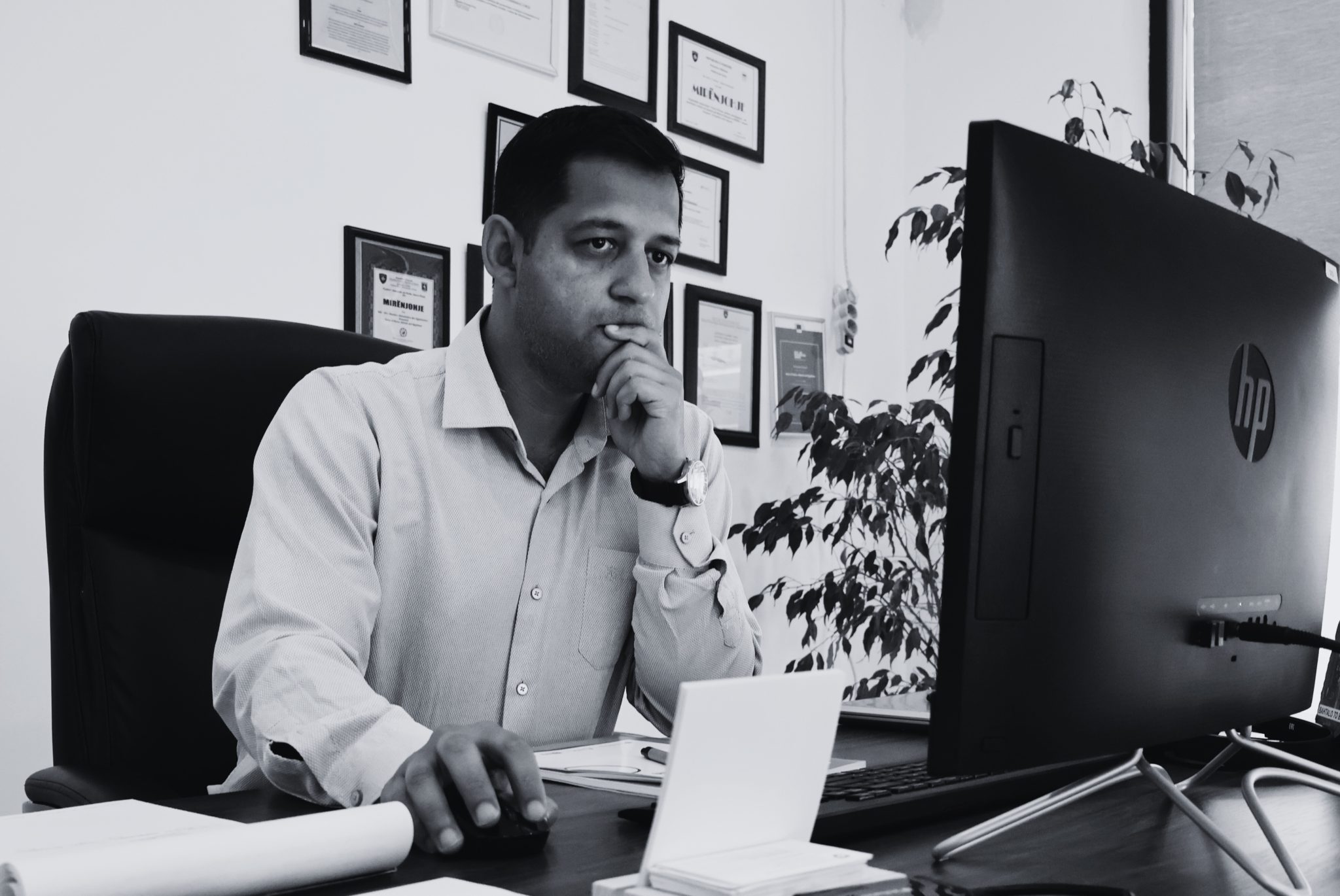
Isak Skenderi, founder of the NGO Voice of Roma, Ashkali, and Egyptians (VoRAE), in his office in Pristina, Kosovo. Photo: Dominika Badzova
Non-profit organisations navigate the labyrinthine corridors of post-conflict Kosovo in search of solutions for the marginalised. Led by human rights activist Isak Skenderi, a survivor of the war, his NGO Voice of Roma, Ashkali, and Egyptians (VoRAE), staffed by over 18 full-time staff members and volunteers, pursues its mission to see Roma, Ashkali and Egyptian people treated as equals by the state and across wider society, where they have access to the same opportunities as everyone else, and where they know their rights and their responsibilities and are empowered to exercise those rights.
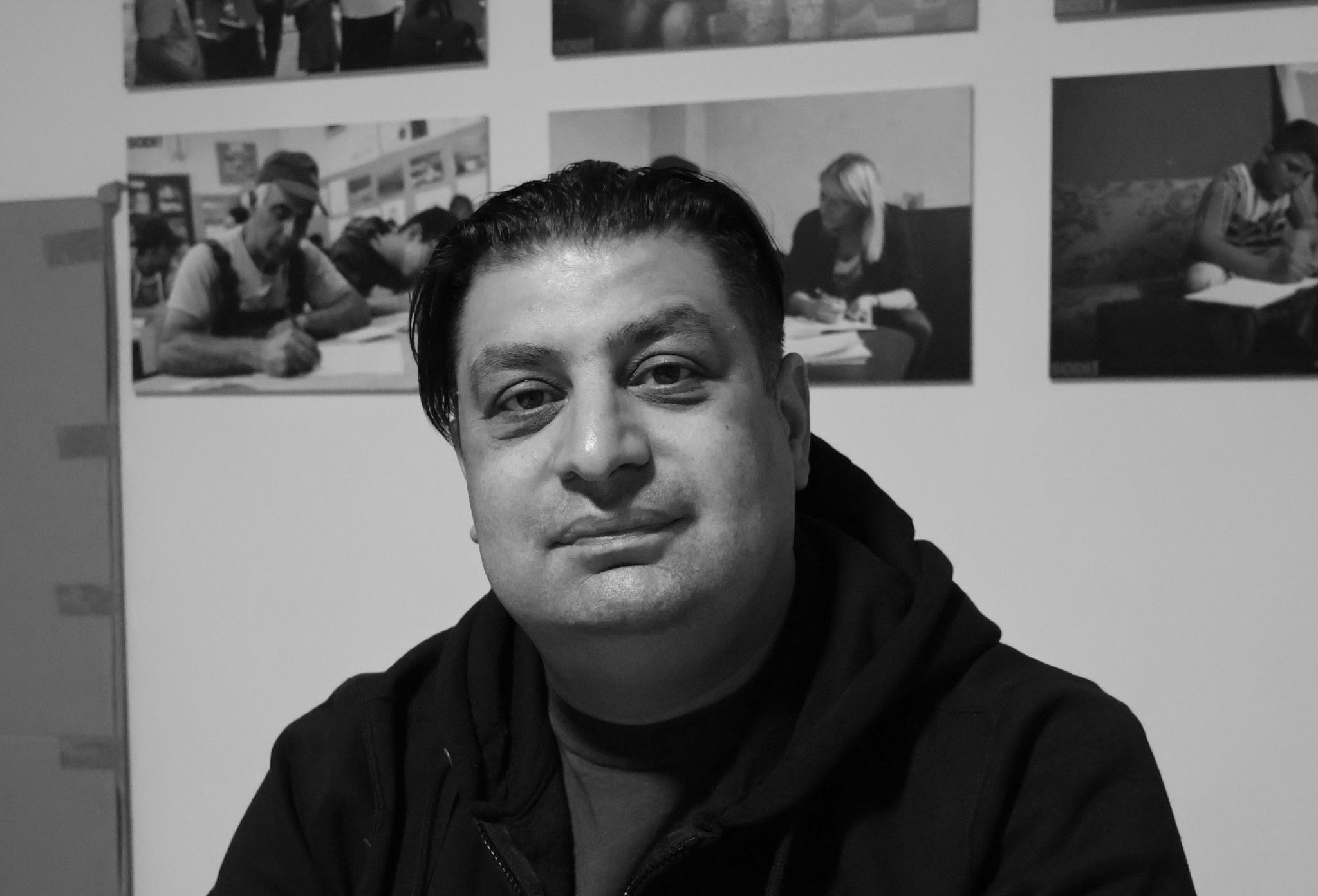
Director of the Forum Roma Srbije NGO, Dejan Markovic, in his office in Belgrade, Serbia. Photo: Dominika Badzova
Across the border in Serbia stands the oppressive forces of the state. Against this are dissenting voices like those of Forum Roma Srbija, an NGO striving for the comprehensive integration of the Roma community and the dissemination of progressive ideas for a democratic society.
These voices reverberate through the halls of power like spectral whispers, challenging the status quo with a radical vision of inclusivity and equality. Their values include anti-fascism, social justice, and respect for diversity, equality and solidarity. The main objectives are an integration of the Roma community in Serbia, the fight against racism, xenophobia and anti-Gypsyism, data collection and analysis of the socio-political situation of the Roma, and the rights of Roma returnees.
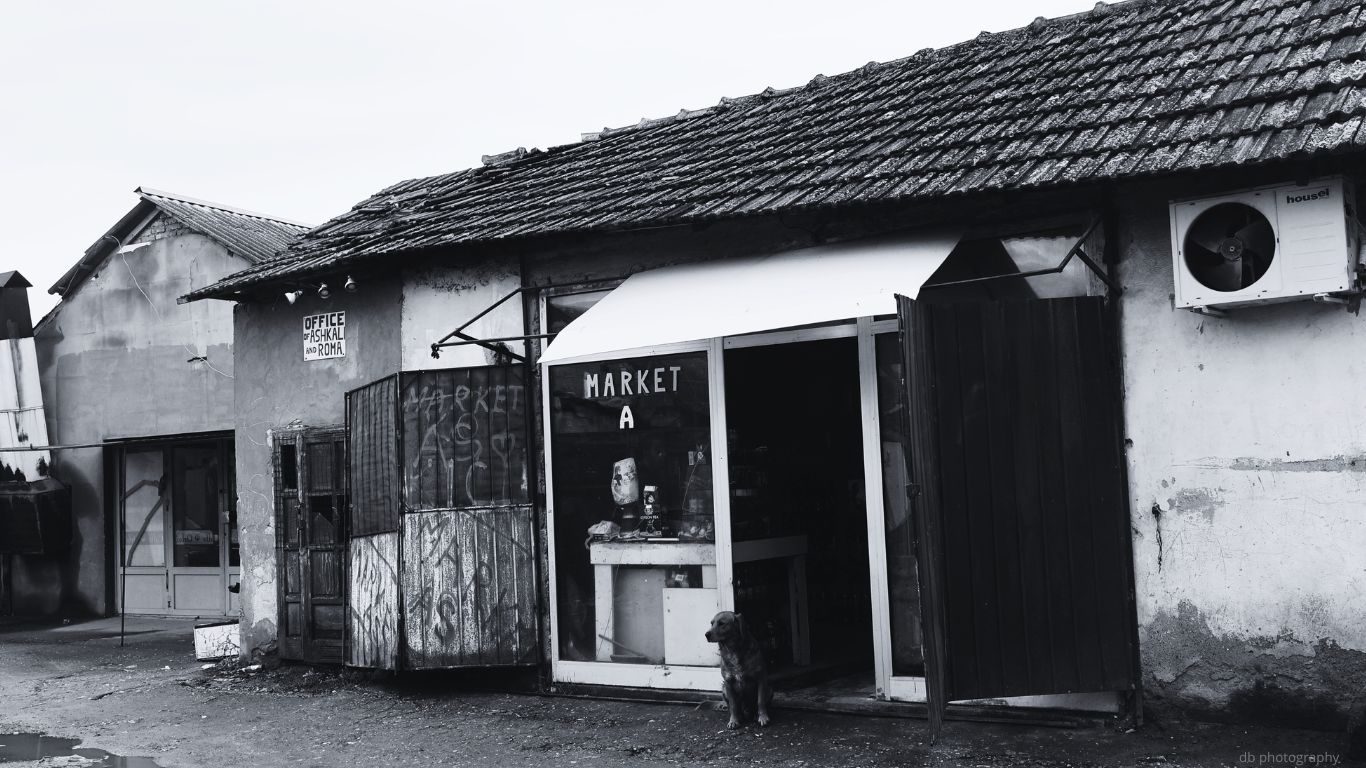
A makeshift market and office in the Veliki Rit settlement, Novi Sad, Serbia. Photo: Dominika Badzova
Within the forgotten enclave of Serbia’s Veliki Rit time itself appears to stand still, trapped in a perpetual limbo of neglect and decay. Here, amidst the crumbling faces of makeshift homes and forgotten dreams, the spectre of displacement looms large, casting its ghostly shadow over the landscape of forgotten hopes and aspirations.
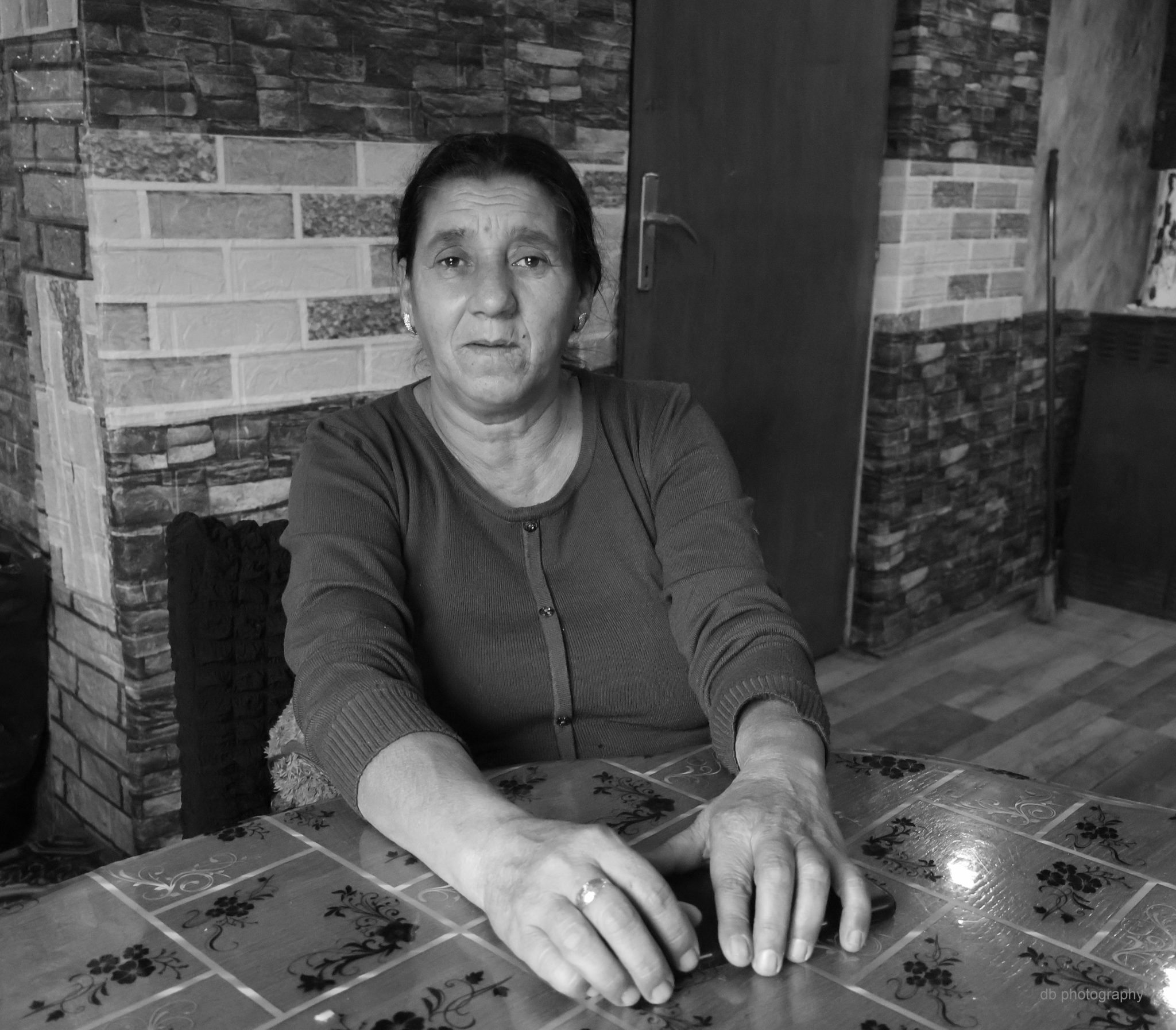
Hurija Berisha came to Novi Sad in 1999 during the war in Kosovo and has lived in Veliki Rit for more than 20 years in the house she built together with her husband and children. Photo: Dominika Badzova
There are more than 2,500 inhabitants in Veliki Rit, many of whom are refugees from the Kosovo war in 1998-1999, but some of them moved earlier during the 1980s. This informal Roma, Ashkali and Egyptian locality has been without infrastructure from the beginning. People live without necessities, and in most cases, there is a lack of knowledge about life outside of this community.
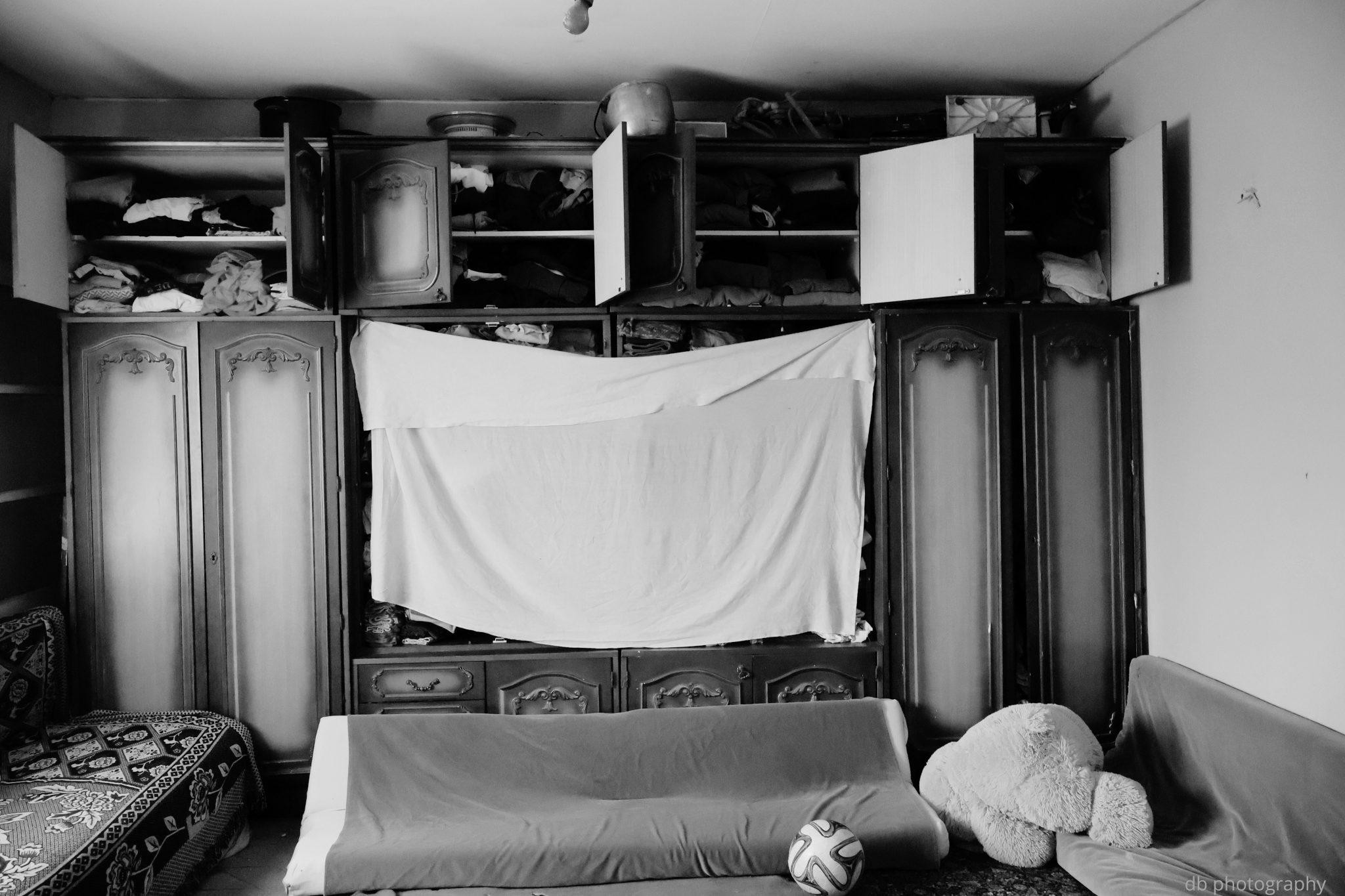
Interior of house in the Veliki Rit settlement, Serbia. Photo: Dominika Badzova
People self-built houses, informal shops and shisha bars, and made spaces that people use as mosques. These people were considered by the state as displaced persons in Serbia, and mainly for this reason many are even today without documents, ID cards and health insurance.
Residents look exhausted, and their hopes for a better life remain outside the framework of most thinking. Instead, some concentrate on their children and push them into education; older people accept that this is their life and they should be satisfied with all the elements and houses which they have built for themselves.
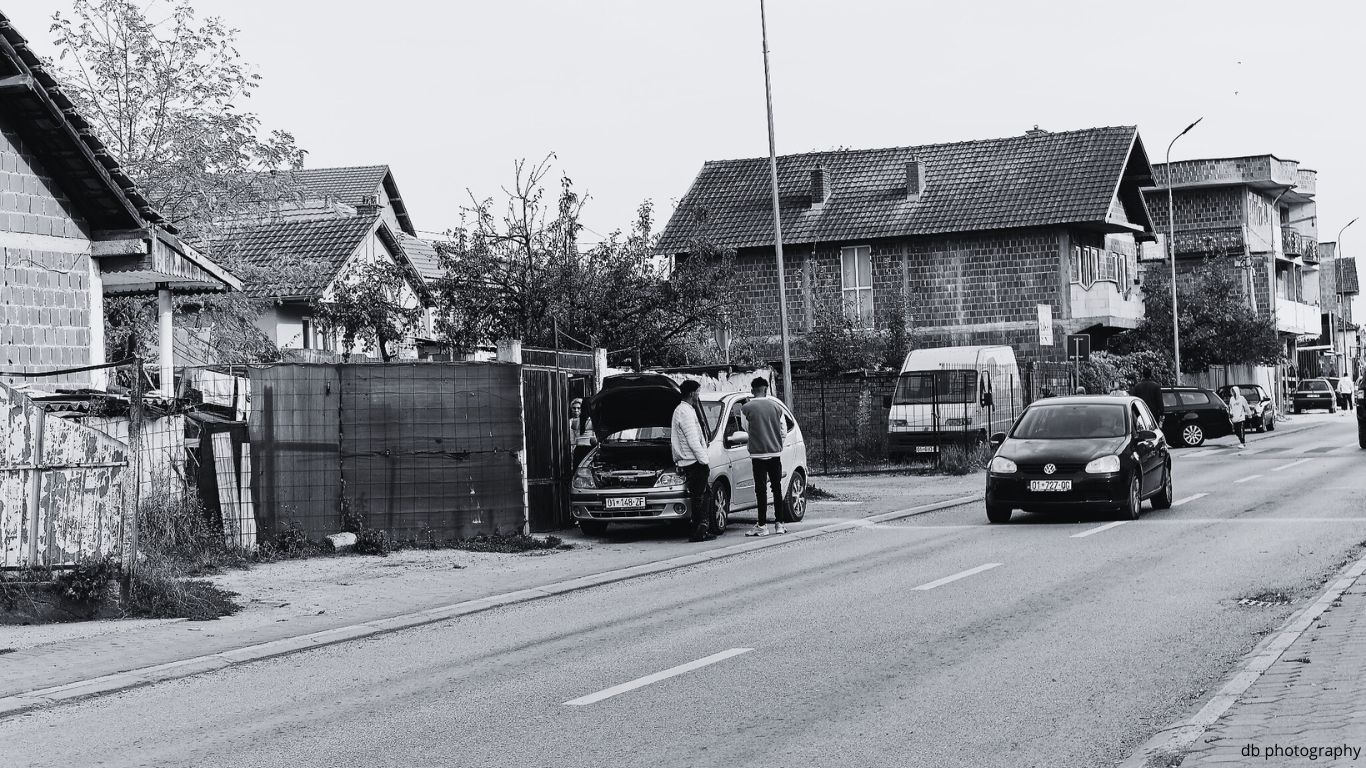
A view of Podujeve, Kosovo from a distance. Photo: Dominika Badzova
Amid the desolation, glimmers of hope pierce the veil of despair, as the vibrant city of Podujeva city in Kosovo emerges like a mirage on the horizon. Here, amidst the surreal glow of progress, Roma, Ashkali and Egyptians find refuge in the promise of a brighter tomorrow, their dreams intertwining with the delicate strands of possibility and renewal.
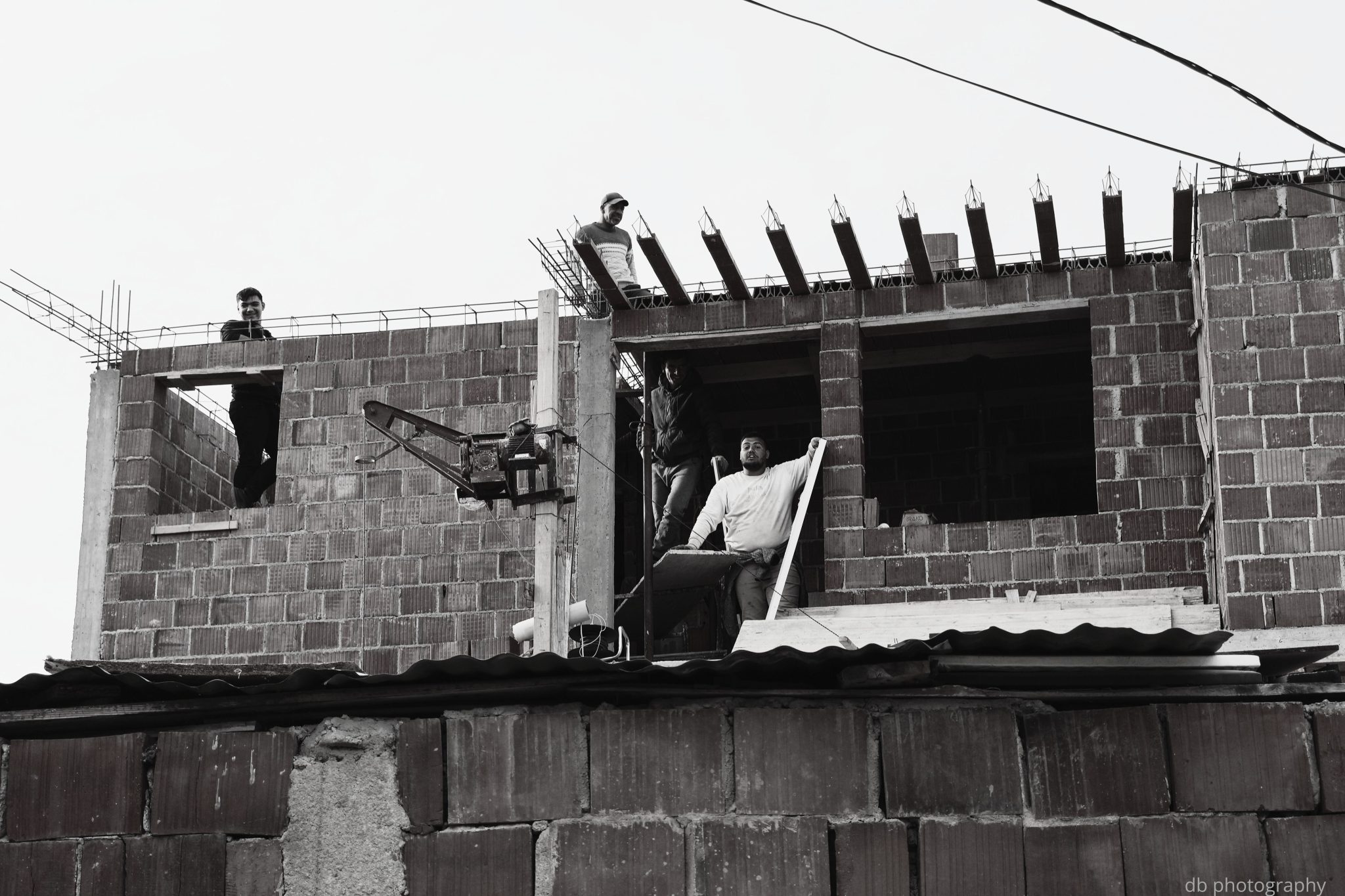
A new house being built in Podujeve, Kosovo. Photo: Dominika Badzova
Here, people often live in newly built houses; even when the buildings are old, the living conditions and infrastructure are in good shape. People also have access to water, the roads are asphalted and residents look satisfied. Many of them do not have access to a job because Podujeva is a small city. Some of them have tried to find work outside of the country and left for Germany, the Netherlands and Austria.
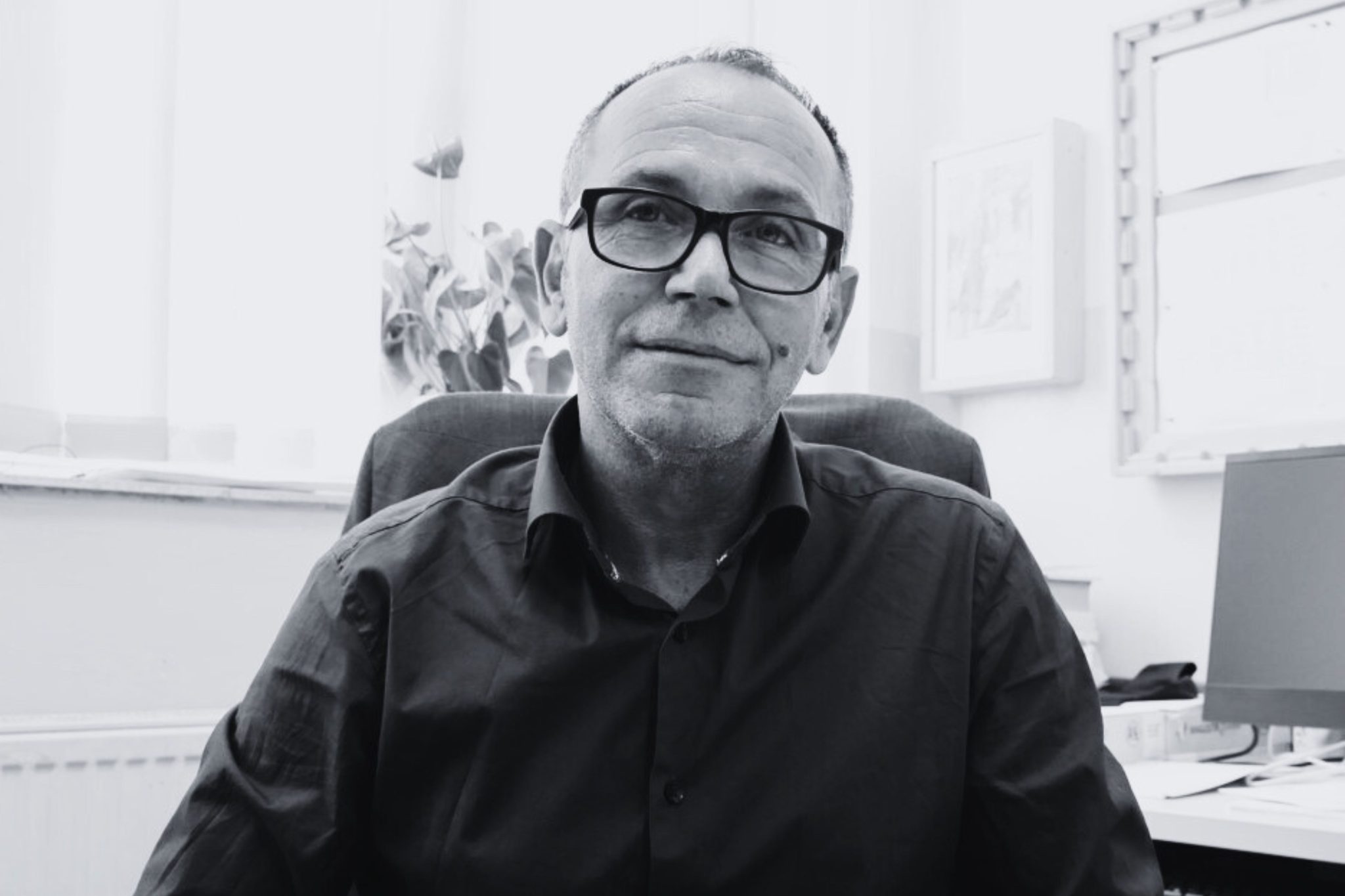
Muhamed Sejdiu, director of economics, secondary school in the Municipality of Podujevo, Kosovo, in his office. Photo: Dominika Badzova
Access to education is mostly available, and mentoring by the NGO VoRAE supports the children and youth by involving them in volunteering or meetings at the schools. In Kosovo, there is a generation of youth who have begun to think about the emancipation of women, and their voices are increasingly voluble in the public space.
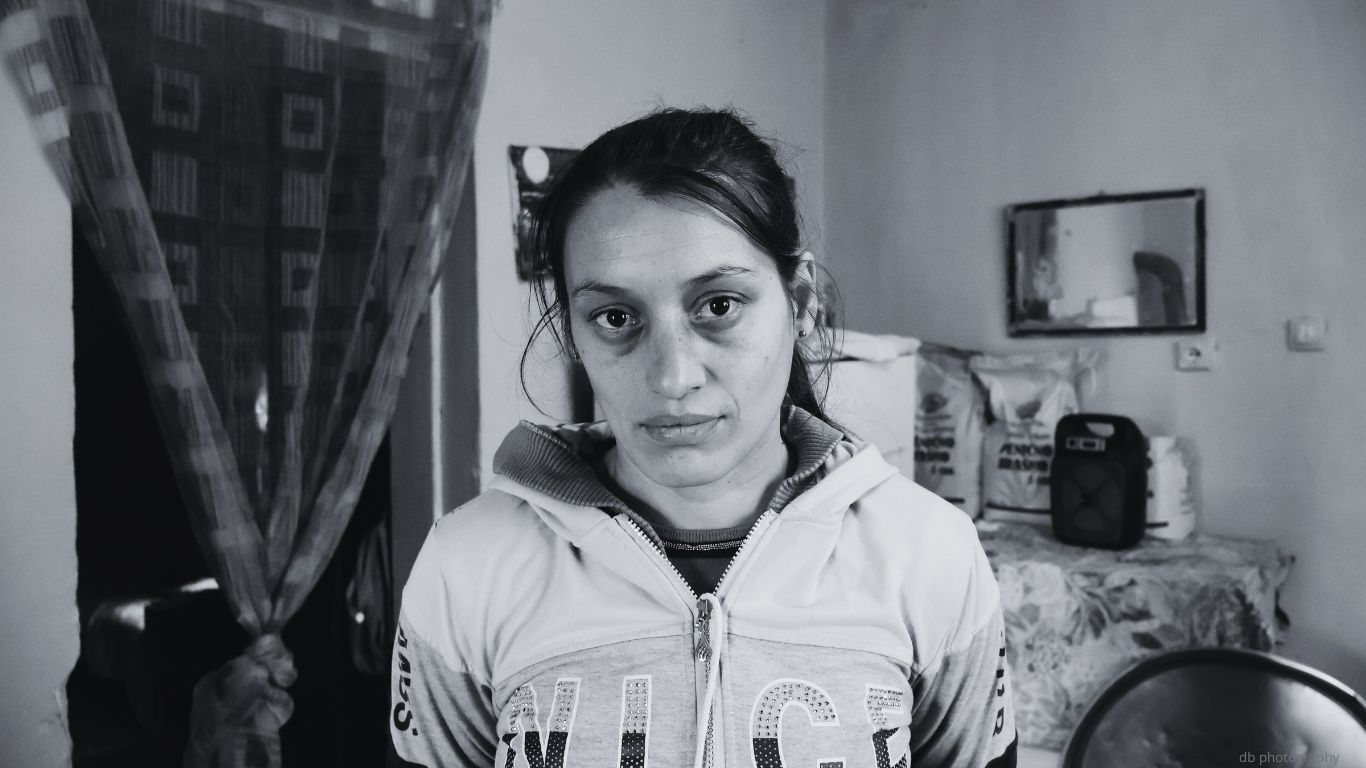
Merita Durmisi, whose grandfather and grandmother came from Kosovo to Novi Sad, but her parents and she were born in the Veliki Rit settlement, Serbia. Photo: Dominika Badzova
Even amidst the burgeoning promise of a new dawn, the spectre of tradition lurks in the shadows, its ghostly presence casting a pall over the landscape of change. In the hazy realm of familial expectations, the voices of young women echo like distant whispers, their dreams entwined in a dance of emancipation and self-discovery.
In the landscape of post-conflict Kosovo and Serbia, the echoes of war reverberate through the collective consciousness, casting a haunting shadow over the quest for peace and prosperity. Amidst the ethereal tapestry of uncertainty and resilience, NGOs like Voice of Roma, Ashkali, and Egyptians in Kosovo and the Forum Roma Srbije in Serbia stand as beacons of hope for Roma people, navigating the labyrinthine corridors of despair to bring equality for vulnerable and marginalised groups.
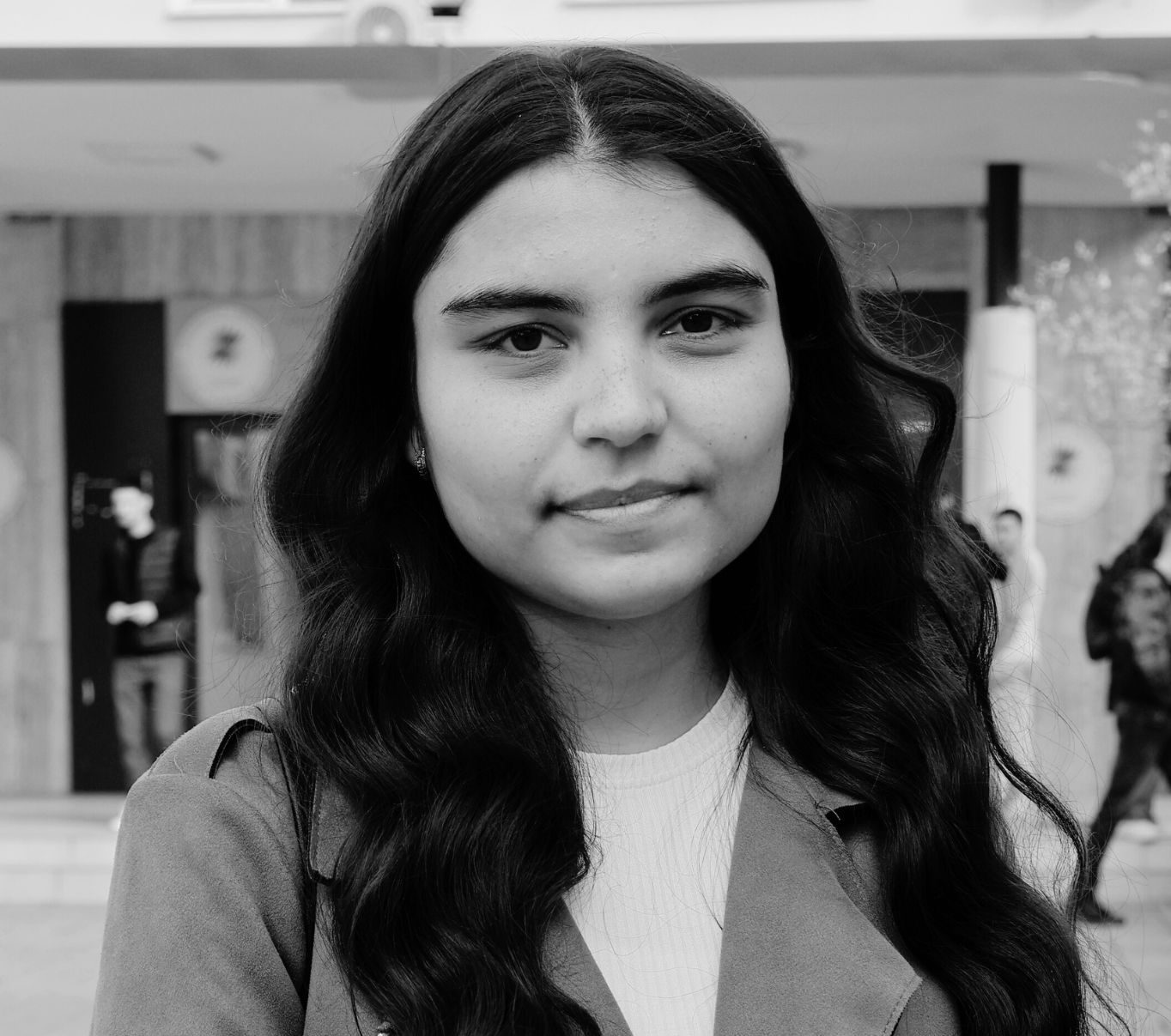
One of VoRAE’s volunteers dedicated to mentoring is Alberina Bajrami, who is studying at the Faculty of Economics at the University of Pristina, majoring in Management. Her volunteer work involves supporting and accompanying young individuals from the Roma, Ashkali and Egyptian communities, contributing to their personal development and better access to education. Photo: Dominika Badzova
Yet amidst the surreal juxtaposition of progress and stagnation, tradition and change, the life stories of the Roma, Ashkali and Egyptians emerge as testaments to the enduring resilience of individuals and the human spirit. Through the haze of displacement and disillusionment, their difficult journey embodies a sense of admiration.





